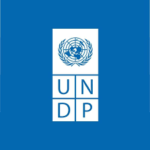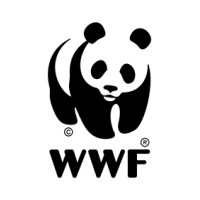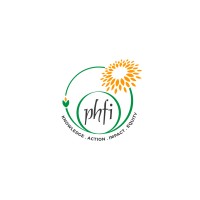
Website UNDP
Background
UNDP is committed to achieving workforce diversity in terms of gender, nationality and culture. Individuals from minority groups, indigenous groups and persons with disabilities are equally encouraged to apply. All applications will be treated with the strictest confidence.
UNDP does not tolerate sexual exploitation and abuse, any kind of harassment, including sexual harassment, and discrimination. All selected candidates will, therefore, undergo rigorous reference and background checks.
UNDP has been working in India since 1951 in almost all areas of human development. Together with the Government of India and development partners, we have worked towards eradicating poverty, reducing inequalities, strengthening local governance, enhancing community resilience, protecting the environment, supporting policy initiatives and institutional reforms, and accelerating sustainable development for all.
With projects and programmes in every state and union territory in India, UNDP works with national and subnational government, and diverse development actors to deliver people-centric results, particularly for the most vulnerable and marginalized communities. As the integrator for collective action on the Sustainable Development Goals (SDGs) within the UN system, we are committed to supporting the Government of India’s national development vision and priorities and accelerating the achievement of the SDGs for the people and the planet.
UNDP India’s current Country Programme, 2018-2022, is in its final year of implementation. Our new Country Programme (2023-2027), which comes into effect in 2023, builds on our prior work and aims to provide an integrated approach to development solutions in three strategic portfolios:
- Strong, accountable and evidence-led institutions for accelerated achievement of the SDGs.
- Enhanced economic opportunities and social protection to reduce inequality, with a focus on the marginalized.
- Climate-smart solutions, sustainable ecosystems and resilient development for reduced vulnerability
South-South cooperation, gender equality and social inclusion are promoted across the pillars. The programme is supported by a framework of renewed partnerships and blended finance solutions, strategic innovation and accelerator labs, and data and digital architecture.
You are invited to join a team of future-smart development professionals to support India in achieving the national and globally agreed goals. As part of the UNDP team, your focus will be to work with diverse stakeholders to find country-specific solutions that lead to sustainable development and reach those furthest behind first.
More than half of all livelihoods in India is primarily dependent on agriculture. A massive 54.6% of the total workforce is engaged in agricultural and allied sector activities and 57% of the rural households are directly dependent on agriculture for their livelihoods. However, the agricultural sector is facing various challenges like small landholding, declining productivity, rising input costs, declining farm income, the adverse impact of climate change, and decline in the percentage share of workers engaged in the agriculture sector. Agricultural production shocks have huge social and financial repercussions, impacting rural income levels, Gross Domestic Product (GDP) and poverty rates.
The Government of India’s flagship schemes Pradhan Mantri Fasal Bima Yojana (PMFBY) and KCC/MISS have become important tools to strengthen the resilience of Indian farmers. The schemes ensure maximum benefits for the farmers by providing financial risk protection against natural calamities and catastrophic events including pests, climate uncertainties and environmental shocks. Apart from providing comprehensive risk coverage for the entire crop cycle, PMFBY also enables direct claim transfer into farmers’ accounts through e-remittance. Additionally, to address agrarian distress, Kisan Credit Card/ Modified Interest Subvention Scheme (MISS) was introduced by the Government of India to provide cheap and hassle-free credit for millions of farmers and to ensure continued investment into agriculture to bring in mechanisation, modernise agriculture practices and eventually enhance productivity.
UNDP’s Country Programme Document (2023-2027) intended outcome 2 states that “By 2027, people will benefit from and contribute to sustainable and inclusive growth through higher productivity, competitiveness and diversification in economic activities that create decent work, livelihoods, and income particularly for youth and women”. UNDP leverages its expertise in systems strengthening to support the Ministry of Agriculture through setting up of Central Program Management Unit (CPMU) for the implementation of PMFBY and KCC, to improve institutional and programme responsiveness, increase coverage and better access among marginalised and excluded farm households, offering innovative measures and support mechanisms for Agri-value chain financing, risk management and reduced crop loss for the rural population in India. The PMU will also focus on providing Capacity Building and Training support to participating state-level government departments involved in PMFBY and KCC and advancing the scheme among new states for improved uptake.
Duties and Responsibilities
The Remote Sensing Officer – Technical Support Unit will work under the overall guidance and supervision of the National Programme Director-TSU. S/He will ensure engagement of all direct stakeholders and delivery of project objectives, in coordination with the Joint Secretary & CEO, DoA&FW, MoA&FW when needed.
- Satellite Image Analysis using ArcGIS (Desktop & Server), ERDAS IMAGINE; Knowledge of other Geospatial software such as ENVI, QGIS, SNAP, GRASS etc., will be an added advantage.
- Experience in handling Very High resolution optical and radar data.
- Remote Sensing based time series analysis, crop acreage and yield estimation.
- Facilitate for implementation of data driven Smart Sampling, CCE Optimization, two step yield estimation and direct crop yield estimation approaches.
- Provide timely inputs for the timely submission of all progress reports as may be required by UNDP, the Ministry of Agriculture.
- Specialist will be responsible for the supervision of officers, associates and others who focus on remote sensing and spatial analyses.
- Liaise with UNDP, Ministry of Agriculture, relevant government agencies and all project partners, for effective coordination of all project inputs.
- Support the Lead – Remote Sensing for successful achievement of the project objectives.
- Perform any other tasks consistent with the level of the post and/ or assigned by the Lead –
- Remote Sensing and National Programme Director – Technical Support Unit.
Competencies
Core Competencies
- Achieve Results: LEVEL 1: Plans and monitors own work, pays attention to details, delivers quality work by deadline.
- Think Innovatively: LEVEL 1: Open to creative ideas/known risks, is pragmatic problem solver, makes improvements.
- Learn Continuously: LEVEL 1: Open minded and curious, shares knowledge, learns from mistakes, asks for feedback.
- Adapt with Agility: LEVEL 1: Adapts to change, constructively handles ambiguity/uncertainty, is flexible.
- Act with Determination: LEVEL 1: Shows drive and motivation, able to deliver calmly in face of adversity, confident.
- Engage and Partner: LEVEL 1: Demonstrates compassion/understanding towards others, forms positive relationships.
- Enable Diversity and Inclusion: LEVEL 1: Appreciate/respect differences, aware of unconscious bias, confront discrimination.
Cross-Functional & Technical competencies
Digital & Innovation
- Data analysis Ability to extract, analyze and visualize data (including Real-Time Data) to form meaningful insights and aid effective decision making.
- Geospatial analysis: Skilled in techniques which study entities using their topological, geometric, or geographic properties.
- Machine learning: Skilled in computer algorithms that improve automatically through experience and by the use of data.
- Data collection Being skilled in Data Sorting, Data Cleaning, Survey Administration, Presentation and Reporting including collection of Real-Time Data (e.g., mobile data, satellite data, sensor data).
- Data engineering: Ability in programming languages such as SQL, Python, and R, be adept at finding warehousing solutions, and using ETL (Extract, Transfer, Load) tools, and understanding basic machine learning and algorithms.
General (across the functions)
- Event planning and execution: Ability to plan, manage and execute of public and private events to ensure that they support and amplify individual communications and advocacy initiatives, as well as UNDP’s overall brand and mandate.
Required Skills and Experience
Education:
High School OR Bachelor’s Degree in Science in Agriculture/ M. Tech in Remote Sensing & GIS or equivalent field.
Experience:
- Minimum 7 years’ (High School) or 4 years (Bachelor’s degree) of demonstrable experience in remote sensing/ geo spatial analysis/ crop yield modelling.
- Additional years of demonstrable experience in remote sensing, geo-spatial analysis, crop yield modelling or related fields.
- Experience of working with Central and/or State Governments/ national/ international/ public private organisations /on similar assignments will be preferred.
- Experience at the national level working with Governments and private entities.
- Demonstrates integrity and ethical standards,
- Promotes the vision, mission, and strategic goals of the organization.
- Demonstrates substantive and technical knowledge to meet responsibilities and requirements of the post with excellence,
- Possesses the capacity for strategic planning, result – based management and reporting.
- Good facilitation and communication skills,
- Ability to carry out research and communicate strategic pieces that guide decisions on strategic programme directions,
- Tailors and presents information to diverse audiences using a variety of communication delivery methods (e.g., written, electronic, oral, interpersonal) Documentation,
- Good interpersonal skills and ability to establish and maintain effective partnerships and working relations with people in a multi- cultural, multi-ethnic environment with sensitivity and respect for diversity.
- Strong leadership skills,
- Ability to lead a Technical and Communication team,
- Demonstrated skills in building, mobilizing, and leading multi- disciplinary teams,
- Hands-on experience in design, formulation, implementation, monitoring and evaluation of projects,
- Ability to guide the Project Management Unit in implementing and achieving project outcomes,
- Ability to lead consultative meetings at national and state level with partners and senior stakeholders to identify priorities and manage the timely delivery of project activities,
- Reliable in delivering own parts of the work as part of a team effort,
- Demonstrates excellent work/project planning skills,
- Is open to change and ability to manage complex, ever-changing environments.
Language Requirement:
- Excellent oral and writing skills in English and Hindi
NOTE: This position is open for India nationals only
Remuneration starting at INR (Annual) 12,38,820 / 1,03,235 INR (Monthly) as per the scale depending on qualifications and experience. The remuneration is excluding 8.33% pension amount paid over and above the salary.
To apply for this job please visit estm.fa.em2.oraclecloud.com.





